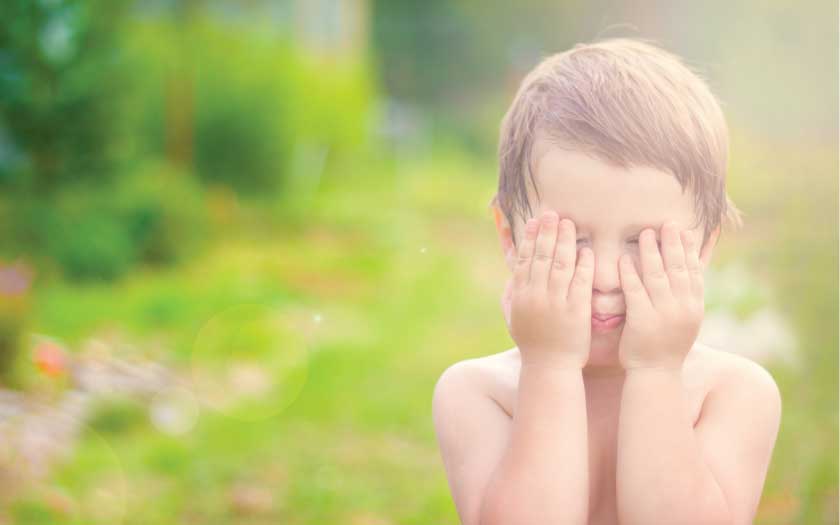Some are considered to be in the terrible twos phase, while others may be shy and unapproachable. As cute as they are, toddlers can sometimes be misunderstood, which is quite frustrating for them as well as their parents. Read on…
Toddlers are always trying to communicate their needs and wants but some, if not all, do not have the vocabulary to do so. Imagine for a moment if you were in a restaurant trying to ask for a cup of coffee, and no one understands a word you’re saying. Well, that’s how frustrating things can be for toddlers who are trying to tell their parents or caregiver what they want or need. What else is there to do other than to start bawling… or in other words, act up.
Toddlers can appear confusing in their ways at times, but if you put yourself in your little one’s shoes, you might get the picture. Toddlers naturally yearn independence, but fear being separated from their parents or caregiver. They go through a lot of emotions and feeling that they don’t quite understand, and they don’t have much control over them either. Things can get overwhelming for them, hence the last thing they need is their parents getting frustrated with them.
Patience and understanding are the keys to getting through this phase.
Teaching emotion skills
While it’s never easy dealing with a frustrated toddler, it’s still ever so important to not lose your head while dealing with a little one’s tantrum or fussiness. Staying calm yourself will help to prevent your toddler’s emotions escalating, so at the event of a meltdown and you seem to have hit a brick road on what to do, keep calm and let it ride out.
Note too, that it’s also a good time to help your child put feelings into words, especially if you know the reason for the meltdown. For example, if a junior is upset because he can’t find his favourite toy, you can say:
“It’s ok… you must be upset because your toy is missing. Let’s go look for it together, alright. I’m sure we’ll find it if we look together.”
Mind the way you respond
Have you ever felt uncomfortable at people rambling away at your with no eye contact? Not only is it rude, but it seems impersonal, doesn’t it? Children may not show that they care, but they need a proper, sensible, and personal response to thrive in their upbringing. If you have something to say, try getting down to your child’s eye level by kneeling or squatting. That way, you’re talking to and not at the little one and it’s more personal and genuinely caring.
Your little one is learning from you
Your response can have a powerful influence on your child’s behaviour and ability to control emotions. When you stay calm and buckle under the pressure of tantrums and meltdowns, your little one will inevitably feed off this calmness – and you would have indirectly shown to your child how to deal with frustrating situations.
What it means to be a toddler
Between 1 and 3½ years, a little child is called a toddler. This not only because of the way they happen to walk, but also the astounding rate of physical and cognitive development that they undergo. Just think about it – By three years of age, a child’s brain will be 80% the size of an adult’s! That’s a lot of developing and growing to do, and it includes emotional development as well.
Mama, don’t go!
In most communities, a child will surely have to go through separation from his or her parents at some point, for example, when the little one goes to a daycare center or is looked after by other carers. How will your child handle the separation from you?
You can talk to your toddler about times when you’ll need to be apart. Children feel more secure if they know when you’re going to be away, where they’ll be, and when you’ll be back, even if it’s all part of a routine they already know. So, instead of avoiding the conversation, talk about the times when you’ll have to be apart, with the promise of coming back for him or her.
While your child is with another person, e.g. carer, sitter, etc, let him take a favourite item along from home. This will help your little one feel ‘connected’ to home while waiting for you.
It can also help if your child’s educator or caregiver talks about you when you’re not there. And when you go, let your child know that you’ll be coming back.
Stop feeling nervous yourself about being separated from your child, for children can sense what their parents are feeling! Instead, keep any worries you might have about separation to yourself.
Avoid lingering around after bidding goodbye or your child will naturally expect to stick around each a little longer each time you say goodbye in the future – Leaving quickly once you’ve said goodbye. Avoiding dramatic statements like ‘Don’t be scared’ or ‘Be brave’.
In conclusion.
Children’s emotional needs are often overlooked, especially in this fast-paced, modern era. Some parents even think that they have to toughen up their children from a young age in hopes that it will help them be more competitive and successful. This leads to neglect in terms of emotional nurturing, but remember, this is the kind of nurturing that all toddlers need to thrive and grow well.


